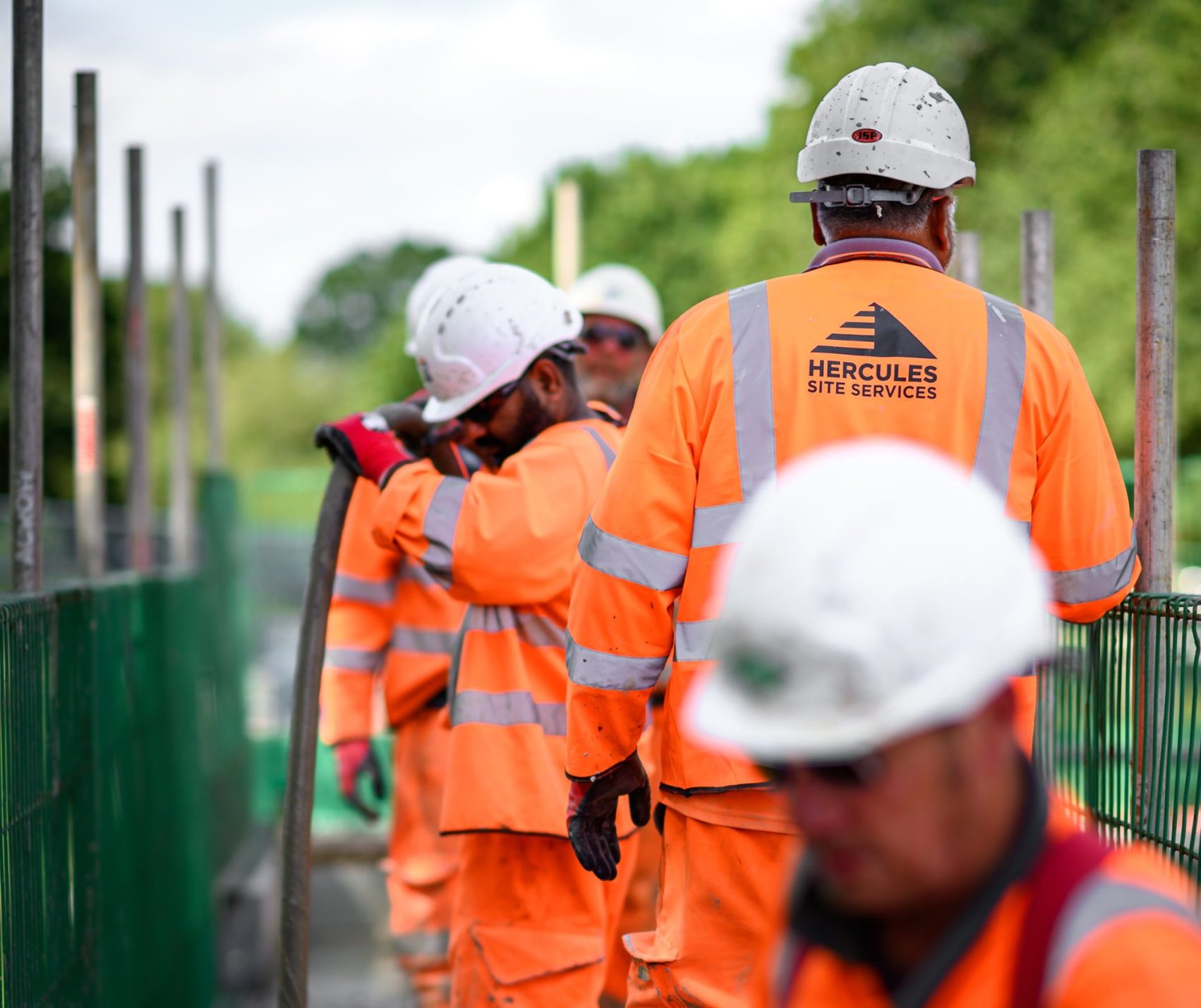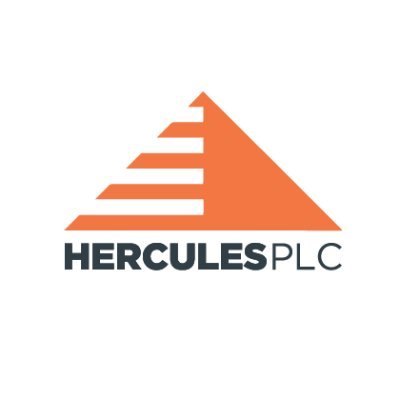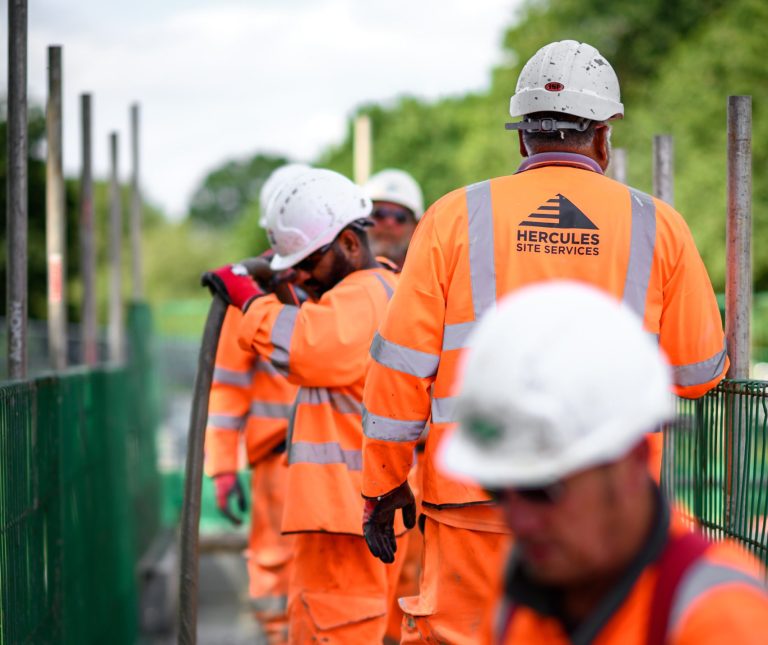Hercules Plc (LON:HERC) Chief Executive Officer Brusk Korkmaz and Chief Financial Officer caught up with DirectorsTalk to discuss record performance, labour supply strategies, and their latest acquisition of Advantage NRG
Q1: Bruce, if I can just start with your recent interim results. They showed record revenue and profits. Which factors, operation or market-driven, contributed most to that performance?
A1: We had a fantastic first six months of 2025. Our revenue, EBITDA, Profit before Tax, and Earnings Per Share all increased compared to the first half of 2024, and we are trading in line with the market expectations.
A record revenue of £54.6 million was achieved in the first half of 2025, which is up 18% year-on-year. Our labour supply division delivered 31% year-on-year growth, driven by strong demand across cornerstone infrastructure projects such as Sizewell C and HS2.
We continue to grow our rail division and secure new client wins across the wider infrastructure sector and finally, strong operational momentum is being supported by our digital platform, helping us deploy labour more efficiently than ever.
Q2: Skilled labour remains in short supply. What practical steps will you take to sustain growth in the labour supply division over the next year?
A2: We continue to scale up on key infrastructure projects such as Sizewell C, water contracts and HS2. Our expansion into the rail sector is gaining momentum and supported by growing our Tier 1 client base. We also opened up our office in Sizewell C to support long-term project delivery and also, we are investing in our training through our Hercules Academy to help tackle industry-wide skills shortages, as you just asked.
There is a company that we have also acquired, a training company called QTT, which Paul will talk about later. It’s a really, really good company and they will help us deliver even more skilled people for us to be able to deliver on to the key infrastructure projects.
As you are aware, one and a half years ago, we opened up our training academy in Birmingham and we have been training and upskilling our workforce, as well as delivering training for the local authorities, as well as our key clients and the certain individuals and unemployed people. It has been going really well; we trained over 1,500 people and looking forward to even delivering more training.
As you are aware, there’s 250,000 people required by 2027 and there’s a skill shortage with the amount of investments coming up in the UK. So, we want to make sure we find local people for local projects but also upskill and cross-skill the workforce so we can deliver for the key infrastructure projects coming up.
Q3: Just turning to you, Paul. You’ve completed three acquisitions in the past 12 months, among them was Quality Transport Training and now Advantage NRG. What strategic aims guide your M&A activity and what convinced you that these businesses were the right fit for Hercules?
A3: Well, they’re both quite different stories in terms of what they bring to us and in terms of size as well, but we are very focused on strategic acquisitions that enhance the core capabilities and our training infrastructure, as Bruce has just been outlining.
QTT expands our training delivery. They’re a business that’s been going for a few years; they’ve been operating out of premises in Stoke-on-Trent. They’re now going to work out of our Birmingham facility with our existing academy, and we think that will broaden the amount of courses that we can offer. It will also make us more efficient in how we operate the trainers because some of the people who are coming over to us to work with us will be on the payroll and they are skilled and experienced trainers. So, that’s really, really good news. It will help our whole academy, both economically and commercially.
Advantage NRG is a different story altogether. It’s a fantastic business. It’s been growing over a number of years. and of course it’s in the right place. The demand for their services is very, very significant. Not just now but will be increasingly in the years to come. What they actually do, they pull the huge lines between the pylons and the electricity supply and there’s going to be so much work doing this in the next few years. I think estimates are that the amount of pylons that’s in the country currently will have to multiply by anything between a factor of three and five. So huge amount of work because there’s so much investment going into upgrading the electricity network in the UK. It’s not had the investment that it should have had, as I think everybody would know that.
So, we’re very, very excited that we’ve been able to complete this acquisition and we’re looking for great things from that business in the years ahead.
Generally speaking, why do we do M&A? Well, we’ve made it no secret of the fact that we want to accelerate our growth, broaden our service offerings, and of course deepen our market presence. We’ve done a number of things. Obviously, we’ve raised some money, which helped us finance the Advantage NRG acquisition, we did that in September/ October and we’ve also divested the suction excavator business, which helped in that as well.
So, we’re in a position now with a very, very improved balance sheet and we will use that to pursue further opportunities.
Q4: How does the Hercules Academy support the wider group and in what ways will QTT strengthen its training capacity and commercial value?
A4: Well, as Bruce said, we’ve trained over 1,500 individuals since the launch of the Academy in January. It’s actually located in Nuneaton, which is near the Birmingham HS2 sites, and it is targeting underserved communities. It delivers skills, boot camps, and collaborates with local authorities and colleges.
QTT enhances that capacity with the skills that are coming with that acquisition, and the breadth of curriculum expands quite significantly. I think it’s important to understand that the role the Academy plays is numerous, really, because you’ve got our own people, Hercules people, who need training and retraining regularly. So, you don’t just get one qualification, and you stick with it for the whole of your career, every 3-4 years, it varies depending on the course, those courses have to be updated, you have to do the training again and we always take the opportunity to upskill and or cross-skill so that the people that have the training are able to, therefore, go out and earn more money. Therefore, we are able to earn more money. So, it’s commercially and economically sensible for all parties involved.
We also offer this training to local authorities and colleges, as I’ve said, and also to clients so it’s quite a significant role. You would probably call it vertical integration in terms of Hercules and how Hercules operates and will operate in the future.
Again, going back to what Bruce said, there is a skill shortage, everybody knows this. And whereas we can’t supply that whole skill shortage for the country, it’s too big, we’re going to do quite a bit of it to help ourselves and help others in the market and I think we’re leading the way with that.
So, I think the Academy is important, bolstered by QTT, because it supports the long-term workforce development and strengthens client relationships. The Construction Industry Training Board has made it clear that an extra 225,000 construction workers will be required by 2027 and we’re leading the way, as I say, to try and attack that shortfall and we’ll do our part.
Q5: Just turning back to you, Bruce. Looking ahead, how do you see demand evolving across UK infrastructure and energy projects? What are your principal priorities for the second half of the financial year?
A5: Infrastructure remains buoyant with £750 billion investment earmarked across our main markets, which are nuclear energy, power and energy, rail, highways, and the water sectors.
The next AMP, which is AMP8, in the water sector has a committed investment of £104 billion over the next five years, more than double the £51 billion investment in the current AMP7. Network Rail CP7 investment plans representing £44 billion investment into the rail network was from last April 2024 over the next five years. So, in the rail sector, we are well positioned to maximise our revenue and our profits.
As you might have already seen in the news that the UK government committed to major infrastructure projects throughout 2025 and beyond, including initial investment of £14.2 billion in the nuclear energy such as Sizewell C in Ipswich, along with numerous small modular reactors and carbon capture projects such as Net Zero Teesside as well as major power and energy transmission and distribution projects in various parts of the UK.
We are already supplying labour to early works phase for Sizewell C, and we believe that Hercules will continue to support the project throughout its main construction phase, which is expected to span up to 20 years. We expect strong momentum to continue into the second half of the year, which traditionally accounts for a larger share of our annual performance.
Our key priorities for the second half include scaling our labour division, expanding our presence across rail, civil frameworks and integrating recent acquisitions. We also remain very confident in meeting full-year market expectations.







































